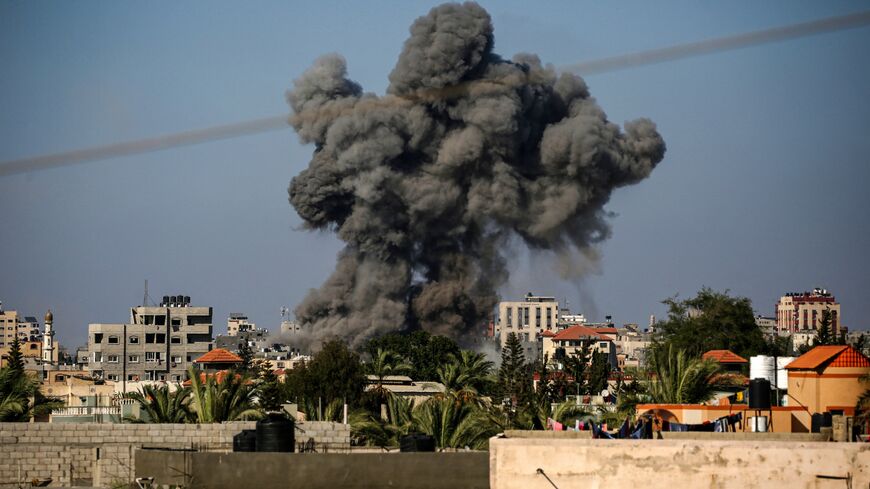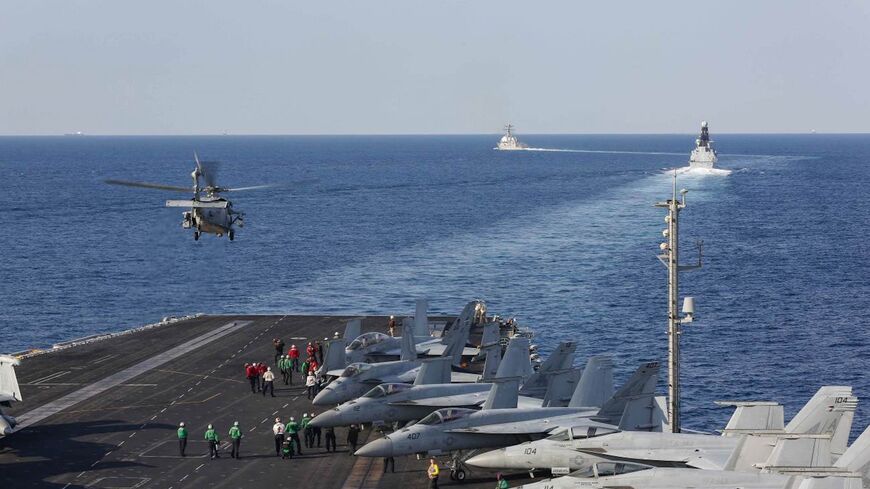US delegations head to Middle East in bid to head off major escalation
Iran's diplomatic mission to the UN denied reports that Tehran is seeking a seat at the table for last-ditch Gaza cease-fire talks planned for Thursday.

WASHINGTON — The Biden administration plans to dispatch senior diplomats to the Middle East this week to persuade Israel and Hamas to accept a cease-fire deal to halt the war in Gaza in order to de-escalate the current spiral toward a wider multi-front war.
Officials in Washington consider a cease-fire in the 10-month Israeli campaign in Gaza — which has killed more than 39,000 Palestinians after Hamas massacred over 1,100 Israelis last October — as key to averting further major escalation that could destabilize the wider region.
Iran and the various proxy militias it arms and funds throughout the region have long called for an end to the Israeli campaign in Gaza and have launched their own attacks using rockets, drones and precision-guided missiles to signal their willingness to escalate on other fronts.
Axios reports that Brett McGurk, the White House's top Middle East policy official on the National Security Council, and Secretary of State Antony Blinken were both set to travel to the region this week to support the last-ditch effort to obtain a cease-fire. Axios' Barak Ravid reported later Tuesday that Blinken's planned departure on Tuesday evening had been postponed due to uncertainty around a potential Iranian attack.
Amos Hochstein, the Biden administration's top energy envoy and lead negotiator on de-escalating a potential war between Hezbollah and Israel on Lebanon's southern border, is also headed to the region, a person familiar with the trip confirmed.
Iran and Hezbollah have continued to vow retaliation this week for twin assassinations they've attributed to Israel — first of top-level Hezbollah commander Fuad Shukr in Beirut and the following day, of Hamas political leader Ismail Haniyeh during his visit to Tehran earlier this month. Israel has claimed the drone strike on Shukr, which came after US and Western officials assured Lebanese intermediaries that Israel would not strike Beirut. Israeli officials have neither confirmed nor denied any role in the assassination of Haniyeh.
Publicly, Iranian officials have remained defiant in the face of open calls and back-channel pressure applied by the United States and Western allies against any further escalation. On Tuesday, Iranian Foreign Ministry spokesperson Nasser Kanaani dismissed a joint call by the United Kingdom, France and Germany for Tehran to refrain from retaliation as "impudent," saying the Islamic Republic retains the right under international law to respond to attacks on its territory.
Senior Biden administration officials have sought to dissuade Iran's leaders in part by arguing that any attack they authorize against Israel will squander any remaining chances of a cease-fire in Gaza and have "devastating consequences" for the region and for Iran's economy.
The Pentagon has directed a massive buildup of naval and air firepower to the region, the largest since the Oct. 7 war began, in a bid to convince the leaders of Iran and the militias they support throughout the region to back down.
On Sunday US Defense Secretary Lloyd Austin ordered a second US aircraft carrier bound for the region, the USS Abraham Lincoln, to hasten its transit from the western Pacific Ocean. Another carrier, the USS Theodore Roosevelt, is already in the region, along with roughly a dozen other warships and fighter aircraft, including stealth long-range F-22 strike fighters that Iran and its proxies are thought not to be able to detect.
In the first sign that Iran's leadership may be tailoring the planned response, Tehran's diplomatic mission to the United Nations told Al-Monitor last week that the Iranian government hopes the planned retaliation will not derail Gaza cease-fire talks. On Tuesday Reuters cited anonymous senior Iranian officials as saying a cease-fire in Gaza could delay Iran's planned retaliation against Israel.
In a subsequent statement to Al-Monitor on Tuesday, Tehran's mission to the UN went on to deny Reuters' reporting that Iranian officials were seeking a seat at the table in a planned return to negotiations on Thursday, either in Cairo or Doha.
“We have not engaged in the indirect cease-fire negotiations between Hamas and the regime, facilitated by Egypt, Qatar, and the US, and hold no intention for involvement in such negotiations," the mission told Al-Monitor in the statement.
Hamas responded Monday to Washington's call for a renewed round of cease-fire talks on Thursday, demanding a return to the cease-fire terms first laid out publicly by President Joe Biden in May and saying further negotiations would only provide Israeli leaders additional "cover" to prolong the war.
"They say they care about the people of Gaza. They seem to care about the Palestinian people. One way to prove that is to sign up to this deal," NSC spokesperson John Kirby told reporters on Monday. "Show up, close it and let's get it done."
This developing story has been updated since initial publication.







